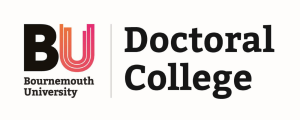
In December I was able to go on a rare office excursion to attend a day arranged by the Academic Registrar’s Council (ARC), with a specific focus on Postgraduate Research Admissions and widening participation.
The presentations and discussions covered a wide arrange of issues and the lengthy list of attendees ensured plenty of different viewpoints and experience were heard.
The day began with a presentation on ‘Structures and Approaches in PGR Admissions: Implementing Change of Inclusive Practices’, which reflected on the findings and policy changes from a 2015 report into Doctoral Education Structures and Strategy. I’d like to touch on some of the topics highlighted in this first part of the day for this short blog post.
A People-Centred Approach
How might we apply a ‘People-Centred Approach’ to the world of PGR Admissions & Recruitment? There were suggestions that this might include a greater array of resources for applicants, in particular guides in how to make a research degree application. I shared the Doctoral College’s guidance document on writing proposals & personal statement which was keenly received during our group discussions on this topic.
We also spoke about pre-enrolment bridging activities for new students. These might be themed around ‘what to expect from your research degree’, as well as previews of the registration & enrolment processes so this initial ‘joining’ time becomes less daunting.
A people-centred approach to PGR recruitment could also mean focusing more on research potential than previous academic achievements. While our academic criteria for a research degree is not too exacting (a 2.1 at bachelor’s degree and/or a relevant masters), there is the argument this may not consider non-traditional educational or academic trajectories.
There might be an opportunity for BU to do more to recruit potential postgraduate researchers who may not adhere to the ‘normal’ educational pathways. As an institution which features work placements as a key part of our UG and PGT offer, discussing how we might better recruit research students from industry or vocational paths could provide BU an edge over its competitors.
Diversification of Doctoral Programmes
One topic that was discussed at length was the success (or not) of diversity the number and type of Doctoral programmed that HEIs offer. Although diversification of programmes was not as high on the list of objectives for Doctoral College and Graduate Schools as submission rates or PRES results, it still ranked in the top 5 measurables to evaluate doctoral education.
In fact, most respondents in the report being discussed noted that ‘New Programmes’ was the key institutional development in growing their doctoral population. This may come in many different forms. Briefly the discussion went from on-campus versus distance programmes, and the various ways this was offered and (and what fees were charged). Among the other programmes mentioned as helping to diversify the doctoral offering were Professional Doctorates and Cotutelle and dual-award programmes. While BU is not currently recruiting to such specifications, this may be an additional route into growing PGR numbers with widening participation in mind.
Inclusive Practices
The key drivers for a more inclusive practice in PGR Recruitment were noted as being:
- EDI Strategy
- Widening Participations
- Non-traditional academic trajectories
- Recognising talent
Although these drivers seemed to lead many Graduate Schools and Doctoral Colleges to review their practices, this often did not extend to their admissions and recruitment processes. These tended to still be heavily UG focused across the country.
At BU, the Doctoral College is lucky to have a large involvement in PGR admissions, where we can influence and drive innovation, working with the faculty research leads. This means that our capacity to be more inclusive is perhaps larger than institutions where admissions processes are kept distant from those that lead on PGRs in their institutions.
What does a more inclusive structure look to you? How could this be achieved? If you have any thoughts, then please do get in touch with us at PGRadmissions@bournemouth.ac.uk
Jamie Chadd
Research Administrator Admissions And Conferment, Doctoral College











 No access to BRIAN 5-6th February
No access to BRIAN 5-6th February Missing Persons Indicator Project Recruitment
Missing Persons Indicator Project Recruitment Celebrating our Research: Postgraduate Research Showcase 2026
Celebrating our Research: Postgraduate Research Showcase 2026 Nursing Research REF Impact in Nepal
Nursing Research REF Impact in Nepal Fourth INRC Symposium: From Clinical Applications to Neuro-Inspired Computation
Fourth INRC Symposium: From Clinical Applications to Neuro-Inspired Computation ESRC Festival of Social Science 2025 – Reflecting back and looking ahead to 2026
ESRC Festival of Social Science 2025 – Reflecting back and looking ahead to 2026 ECR Funding Open Call: Research Culture & Community Grant – Apply now
ECR Funding Open Call: Research Culture & Community Grant – Apply now MSCA Postdoctoral Fellowships 2025 Call
MSCA Postdoctoral Fellowships 2025 Call ERC Advanced Grant 2025 Webinar
ERC Advanced Grant 2025 Webinar Update on UKRO services
Update on UKRO services European research project exploring use of ‘virtual twins’ to better manage metabolic associated fatty liver disease
European research project exploring use of ‘virtual twins’ to better manage metabolic associated fatty liver disease